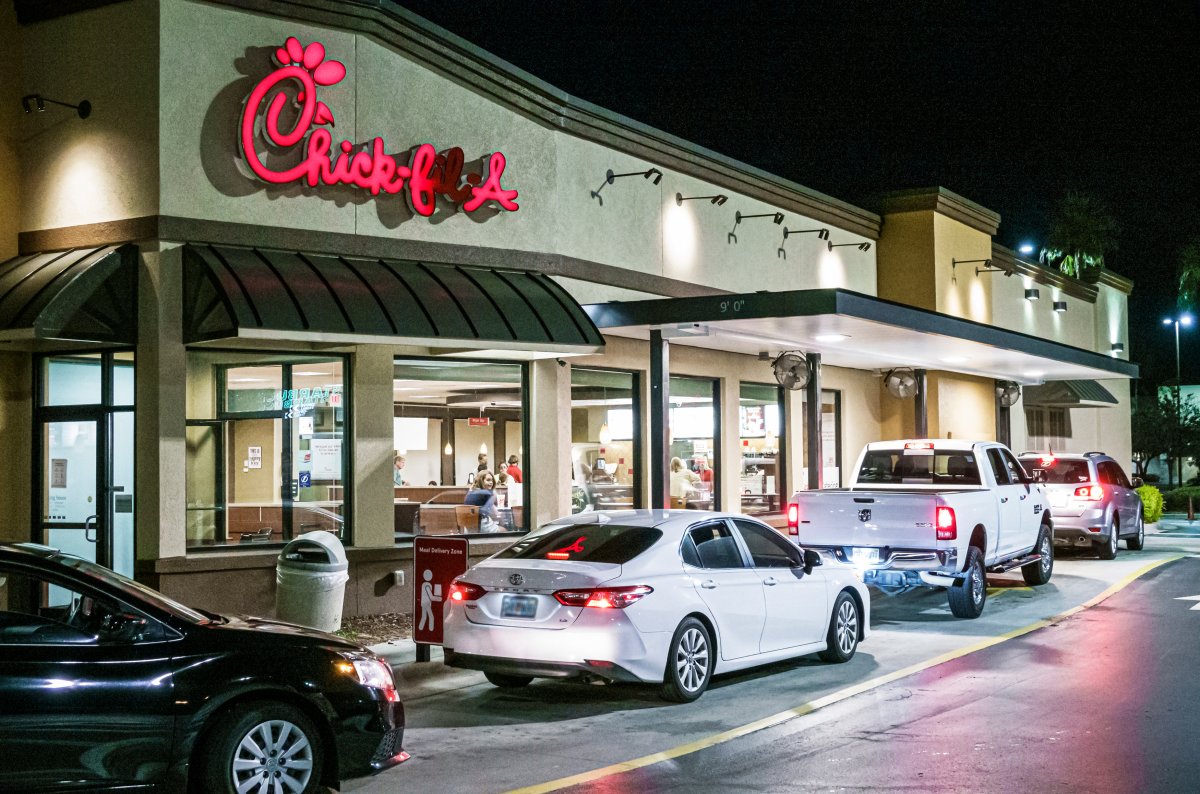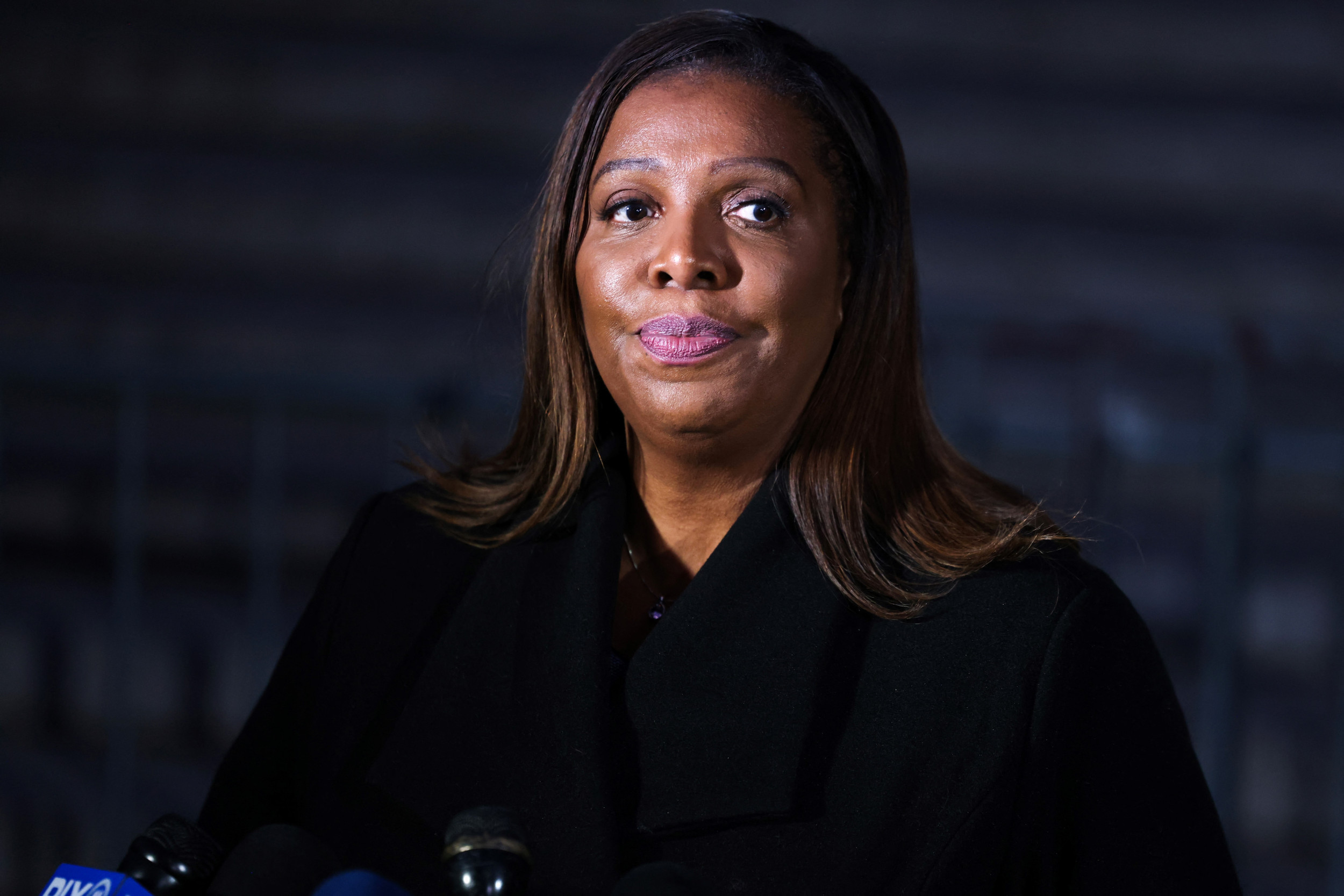Chick-fil-A, one of the most recognizable and profitable restaurants in the United States, is receiving flack not from progressives or liberals but conservatives who view the company's shifts in ideology as antithetical to the values they thought it always exuded, according to multiple branding and marketing experts who spoke with Newsweek.
The iconic brand was thrust into the ongoing culture war battle on Tuesday, due to an unknown Twitter user disseminating a years-old screenshot of the company's Diversity, Equity and Inclusion (DEI) guidelines that have been available for public consumption dating back to 2021.
"One of our core values at Chick-fil-A, Inc. is that we are better together," reads the DEI page on the company's website. "When we combine our unique backgrounds and experiences with a culture of belonging, we can discover new ways to strengthen the quality of care we deliver: to customers, to the communities we serve and to the world. We understand that getting Better at Together means we learn better, care better, grow better and serve better."
The company's spokesperson declined to comment to Newsweek about the seemingly contrived controversy, and it has avoided public statements since the photo went viral. DEI Vice President Erick McReynolds has been in his position since the initiative was originally established.
It's another in a string of social media-led boycotts that have proliferated for different reasons for the past two months or so, beginning with Bud Light's partnership with transgender influencer Dylan Mulvaney. Target has been the wrath of recent ire due to its release of "tuck-friendly" swimsuits—which allow trans women who have not had gender-affirmation surgery to conceal their genitals—ahead of LGBTQ+ Pride Month, which began Thursday, leading to the shaving of $14 billion off its market capitalization.
Alex Susskind, professor of food and beverage management at Cornell University and director of its institute, told Newsweek via phone that the company has made amends since it donated millions of dollars to anti-LGBTQ groups in 2012—compounded by now former CEO Dan Cathy openly expressing opposition towards the prospect of same-sex marriage becoming legalized in the U.S. Cathy's father, Truett, founded the company and his son, Andrew Truett Cathy, is now CEO.

The company is notorious for its pro-Baptist roots espoused by its founder, even famously closing on Sundays. But Susskind said they have made strides to operate a major company with both their religiosity as well as cultural shifts across America in mind.
He compared the brand's ideology of religion versus consumerism to Marriott International, the major hotel empire that has strong roots in the Mormon Church and even placed some 300,000 editions of the Bible and Book of Mormon in hotel rooms in 2018.
"You know that they have their beliefs and you can still come to the restaurants and buy their chicken, whether you're a Christian in their eyes or not, that doesn't matter. ... I think that companies that don't open their eyes to the broader base of what's out there in the world, particularly from a diversity lens, I think they're leaving a lot behind," he said. "It's going to hurt them in the long run.
"Chick-fil-A is being very proactive and if they're getting some pushback from these conservative circles, they're going to get that regardless of what they do. They're gonna get crap from both sides. They're gonna get crap from the incredibly liberal or socially liberal, and they're going to get crap from the far-right. I think that's a losing set of arguments in the long term."
Danielle Bell, clinical assistant professor at Northwestern University's Medill School of Journalism, Media and Integrated Marketing, has studied the DEI initiative for over a decade.
She teaches her pupils that DEI is a journey not just for companies but individuals, acknowledging that various twists and turns in public opinion will lead to barriers that need to be navigated—leading to both applause and criticism.
"Brands should be intentional about how they want to show up for their stakeholders (employees and consumers) and to the world," Bell told Newsweek via phone. "Ask yourself, what are your values and how should I live those values—even when it's messy, even when it's hard."
Asked how the company gets out of this conservative backlash, Alex Davidson, assistant marketing professor at Wayne State University, told Newsweek that's the "million-dollar question."
"A lot of other companies right now are looking at this controversy and other controversies," he said. "They're paying attention to them. They want to know what the playbook is. They want to know what the rules are. They want to know if something like this can happen to them.
"If we look at what's going on with Chick-fil-A right now, I think this is a controversy that must have completely caught them by surprise—the reason being that they haven't done anything recently when all of this started to prompt or give people a reason to complain."
The difference between a decade ago and now, he noted, is that the company's stance reflected directly on the social zeitgeist whereas this recent backlash emanated from nothing concrete. It's precipitated by either anger or inspiration, depending on which side you're on.
"What we're seeing with a lot of people, social media, we're seeing tribalism starting to surface," he said, "and tribalism has always been there as humans. We really like to associate ourselves with an in-group and find reasons to oppose an opposite group...and so cultures are clashing."
Chekitan Dev, distinguished professor of marketing and brand management at Cornell University's School of Hospitality Management, told Newsweek via email he's not surprised that what started out as a 'niche' brand has now gone mainstream, pivoting its brand from a narrowly defined religious values-based company to opposing behaviors considered taboo in some religious circles.
And he doesn't blame Truett Cathy for his business model that began in 1967, saying he "did what he had to do to succeed in a very competitive quick service marketplace" and appealed to a particular segment of the population to claim market value.
Now, the next iteration of the Chick-fil-A legacy is in Andrew Truett's hands. He must steward the brand by filling and staffing their ever-increasing numbers of restaurants if the brand is going to fulfill its potential as the No. 1 quick service brand in the world, he added.
"Typically for most brands, when you lean toward a group you sometimes alienate another group that may consider the new group an 'other' and threaten to abandon the brand," Dev said. "If I were the Chick-fil-A CEO, I would not worry about all the cross rattling by religious conservatives. If Chick-fil-A continues to build food that remains finger-licking good (to shamelessly borrow from another chicken brand), they will come."
Uncommon Knowledge
Newsweek is committed to challenging conventional wisdom and finding connections in the search for common ground.
Newsweek is committed to challenging conventional wisdom and finding connections in the search for common ground.
About the writer
Nick Mordowanec is a Newsweek reporter based in Michigan. His focus is reporting on Ukraine and Russia, along with social ... Read more
To read how Newsweek uses AI as a newsroom tool, Click here.








